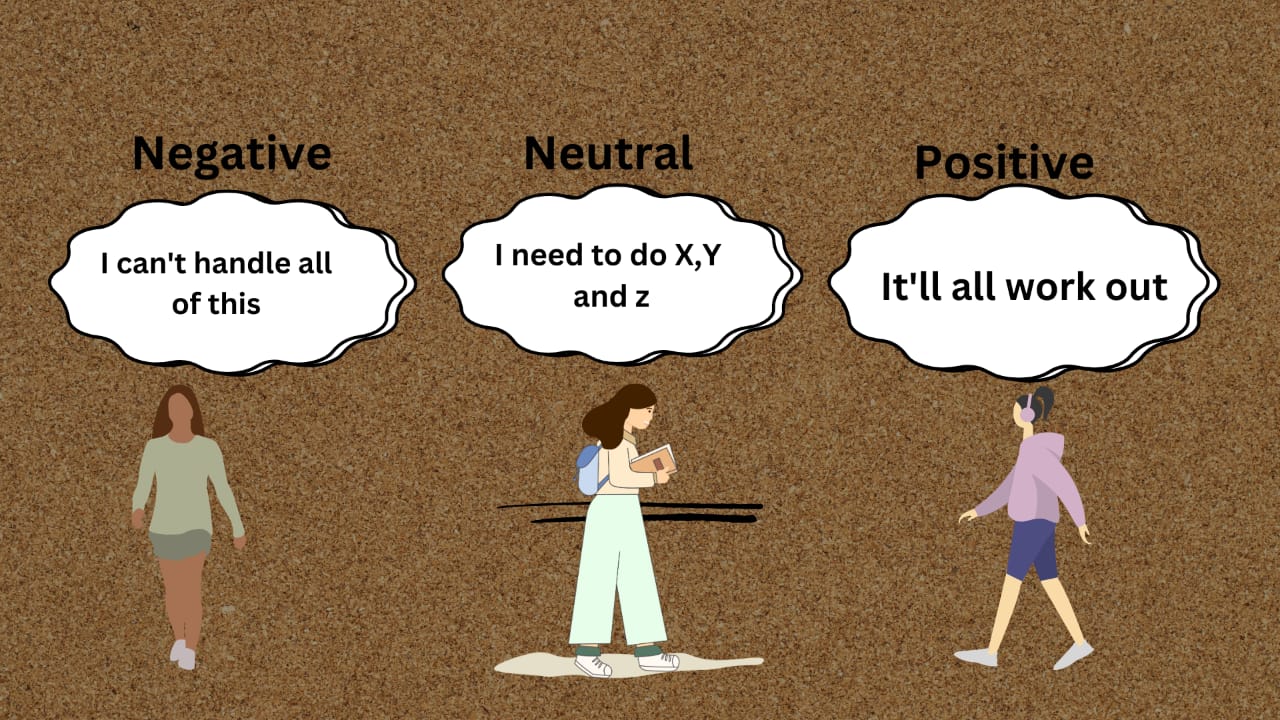Definition of Thought? | Psychology of Thoughts by clinical psychologist
Thought is a very deep phenomenon. It’s challenging to define, yet it’s something we all encounter every day. How do you feel when you hear the word “thought”? What comes to mind when you consider it? Does it stir any emotions or feelings? Thought encompasses various forms of mental activity, such as reasoning, remembering, imagining, and problem-solving. In this blog post, we’ll delve deeper into the nature of thought, aiming to provide our readers with a clearer grasp of this intriguing concept.

Contents
What Is Thought? | Psychology of Thoughts by clinical psychologist
What is thought?
Thought is a mental process that helps us understand the world around us. It involves organizing and interpreting information, as well as drawing on past experiences to plan for the future. Through thought, we can communicate, express emotions, and create art and music. In essence, thought is what makes us human.
Defining thought precisely is challenging because it is closely tied to consciousness. However, one way to view it is as an inner dialogue—a conversation we have with ourselves. We use thought to reflect on our own emotions and ideas, as well as those of others.
Types of Thoughts
Here we will share some kind of thoughts that are present universally. These are;
Negative thought
Negative thoughts stand in stark contrast to positive ones and can profoundly affect our emotional health, often leading to anxiety, depression, and guilt. These thoughts frequently revolve around self-criticism, fear, and envy, each of which can weigh heavily on our mental well-being.
Self-criticism can lead us to be excessively harsh on ourselves, diminishing our self-esteem and creating feelings of inadequacy. Fear can immobilize us, hindering our ability to act or seize new opportunities. Envy can foster dissatisfaction and resentment, making it hard to recognize and value our own achievements and joys.
Such negative thoughts usually arise from personal experiences, such as past failures or unmet expectations. They can also be shaped by external influences like media representations or the judgments of others, which may magnify our insecurities or distort our self-perception.
Recognizing that negative thoughts are a normal part of being human can help us manage them more effectively. By understanding their roots and impact, we can take steps to reduce their influence, seek support when necessary, and adopt strategies to cultivate a more balanced and optimistic outlook.
Positive thought
Positive thoughts play a crucial role in lifting our spirits, fostering optimism, and boosting our productivity. These thoughts often arise from emotions like gratitude, hope, and love—feelings that help us navigate life with a sense of purpose and joy. When we focus on positive thinking, we’re more likely to see challenges as opportunities, appreciate the good in our lives, and stay motivated to pursue our goals.
Gratitude, for example, allows us to cherish what we have, grounding us in the present and nurturing a sense of contentment. Hope gives us the strength to believe in a better future, helping us push through tough times. Love connects us to others, deepening our relationships and fostering a sense of belonging.
These positive thoughts can come from our own experiences, such as overcoming hardships or reaching personal milestones. They can also be sparked by the support, words, or actions of those around us, reminding us that we are not alone in our journey. By nurturing positive thoughts, we build resilience, maintain a balanced outlook, and lead more fulfilling lives.
Neutral thought
Neutral thoughts are those that don’t evoke strong emotions, whether positive or negative. They often involve everyday observations or associations that don’t stir up significant feelings. For instance, noticing the pattern on a piece of furniture or recalling a routine task might bring a memory to mind, but these thoughts are usually more about simple recollections rather than eliciting intense emotions. They are generally mild and don’t significantly affect our mood.

What Are Thought Processes?
The thought processes mentioned earlier are just a few ways we think every day. Each person has a unique way of understanding the world, shaped by their personality traits, such as openness to new experiences and their level of extroversion or introversion.
For instance, critical thinking involves analyzing information to make informed decisions, like comparing different products before making a purchase. Creative thinking is about generating new ideas or solutions, such as designing a new project. Reflective thinking involves learning from past experiences to improve future actions, like understanding a past mistake to avoid repeating it.
These thought processes influence how we interpret and respond to our experiences.
What Are Thought Processes?
The thought processes mentioned earlier are just a few ways we think every day. Each person has a unique way of understanding the world, shaped by their personality traits, such as openness to new experiences and their level of extroversion or introversion.
For instance, critical thinking involves analyzing information to make informed decisions, like comparing different products before making a purchase. Creative thinking is about generating new ideas or solutions, such as designing a new project. Reflective thinking involves learning from past experiences to improve future actions, like understanding a past mistake to avoid repeating it.
These thought processes influence how we interpret and respond to our experiences.
Intrapersonal Thought
Intrapersonal thought is all about self-reflection and internal dialogue. It’s the process of thinking through things in your mind without speaking out loud or using gestures. For example, you might quietly weigh your options when deciding what to cook for dinner, thinking through different recipes and ingredients.
Interpersonal Thought
Interpersonal thought involves communication with others, either directly or through mental imagery and feelings. This can include actual conversations, as well as the internal processing of interactions. For instance, you might mentally replay a conversation with a friend to understand their perspective better or prepare for a future discussion.
What Is Thought Suppression?
Thought suppression is the act of trying to push certain thoughts out of your mind because you prefer not to deal with them. Ironically, this can often lead to the thoughts becoming more persistent and intrusive. Instead of making them go away, the effort to suppress them can make them come up more frequently.
For example, if you’re trying not to think about a stressful work deadline, you might find yourself thinking about it even more often as you try to ignore it. Instead of focusing on the stress, you might benefit from addressing the issue directly, which can help build self-confidence and shift your thought patterns.
Challenging Yourself
If you often find yourself doubting your abilities, consider taking on new challenges. Tackling unfamiliar tasks can push you beyond your comfort zone and encourage you to view yourself more positively.
For example, if you’re nervous about speaking in public, try volunteering to give a short presentation at work or in a community group. Successfully completing this new task can boost your confidence and help you see your strengths in a new light.
Being Mindful
Mindfulness is about staying present and paying close attention to your thoughts and feelings as they occur. By focusing on the here and now, you can more easily release negative thoughts and stress.
For instance, if you’re feeling overwhelmed at work, taking a few moments to breathe deeply and focus on your current task can help you stay grounded. This practice can make it easier to let go of distractions and maintain a calmer, more centered mindset.
Trying Meditation
Meditation involves concentrating on your breath and letting other thoughts drift away. This practice can help clear your mind and enhance your overall thought patterns.
For example, if you’re feeling stressed, taking a few minutes to sit quietly, focus on your breathing, and let your thoughts come and go can help calm your mind. This simple practice can make it easier to manage your stress and think more clearly.
Practicing Gratitude
Gratitude is a strong emotion that can make a big difference in your life. To practice it, focus on the things you appreciate and the positive parts of your life instead of what you lack or haven’t achieved. This shift in focus can boost your happiness and improve your thinking.
For example, at the end of each day, take a moment to jot down three things you’re thankful for, like a supportive friend or a pleasant moment at work. Doing this regularly can help you stay positive and enhance your overall outlook on life.
Other related videos
